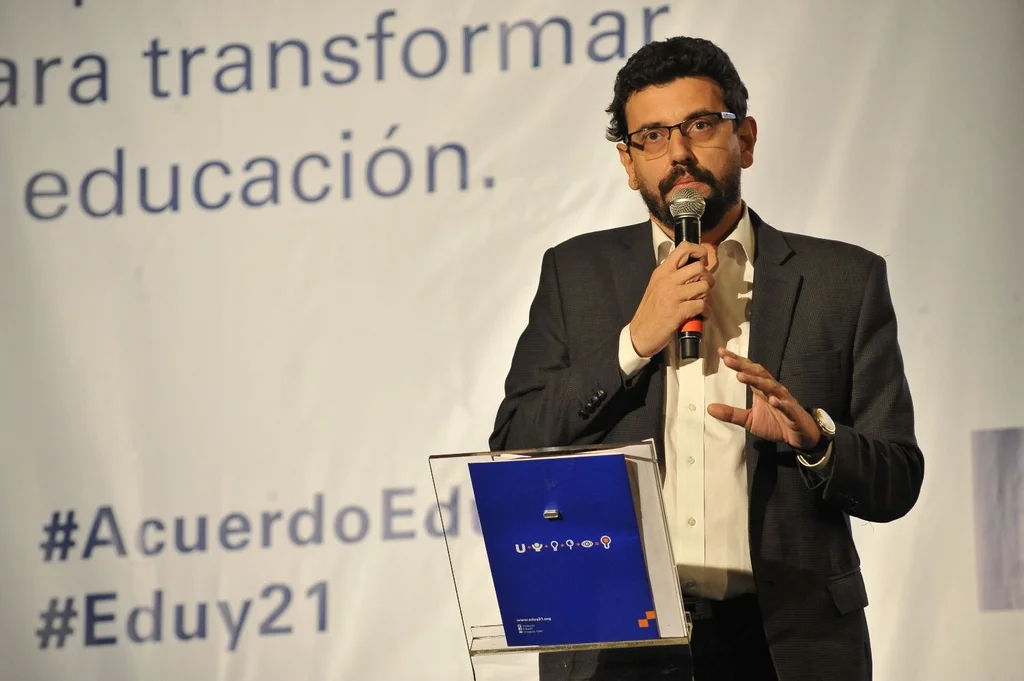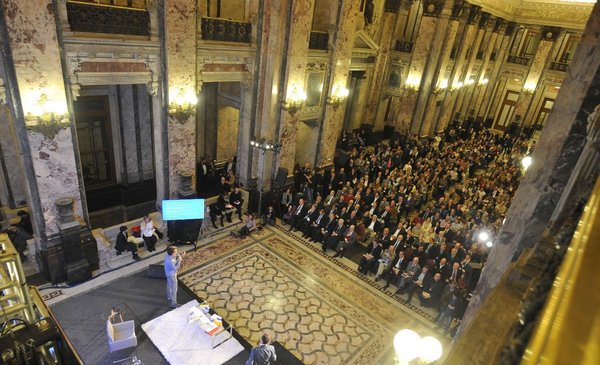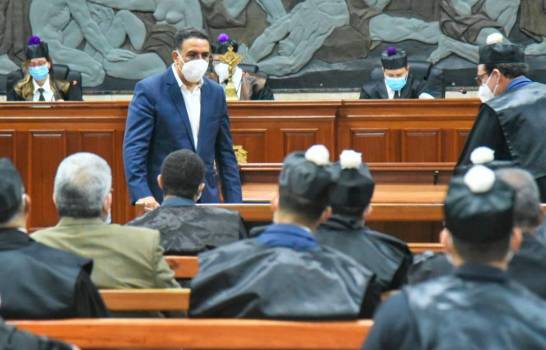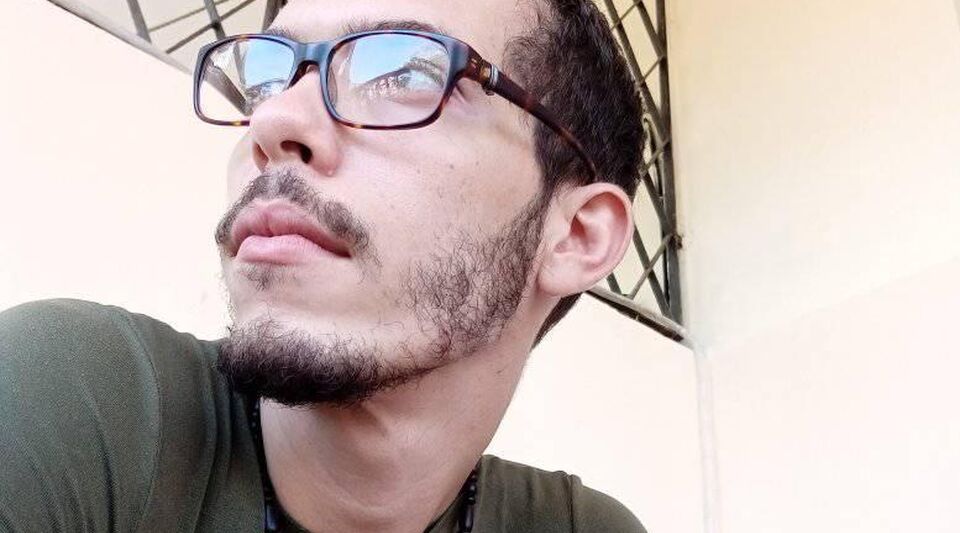In the last two years of the Frente Amplio government the independent and politically plural civil association of experts Eduy21 it was part of the educational agenda and debate. Your text Open book brought together several proposals for the future of national education, such as a common curriculum framework between the ages of 3 and 14, autonomy of educational centers, greater power in decision-making of the Ministry of Education and Culture (MEC), prioritize skills in education, give a university training for teachers and eliminate repetition.
In 2019 the body met with all parties in order to contribute to the policies of the current administration. With the victory of the multicolored coalition, several of its members became part of the government, such as Pablo da Silveira and Ana Ribeiro, Minister and Undersecretary of Education, and the Secretary of Sport, Sebastian Bauzá.
However, Eduy21 has not been present in the political agenda of education nor has it been invited to discuss the new reform known as “Educational Transformation” of the National Public Education Administration (ANEP). The president of Eduy21, Juan Pedro Mir, detailed to The Observer that On December 8, they will meet with ANEP authorities, in what will be his first meeting with a government body in 2021.
The last time they had an important meeting was in December 2020, when they met with Luis Lacalle Pou and transmitted ideas related to education in a pandemic: a Covid Fund for Education, a bimonthly calendar and “Guarantee access to the conditions required so that hybrid modes of education constitute an equalizing instrument of opportunities”, as the statement they published after that instance on Twitter says.
“We continue to function”
In February there was talk of an “elegant” dissolution of this civil society, as published at the time The country, due to the lack of incidence since it was not seen that the current government were to make a fundamental change in education. However, Eduy21 member Renato Opertti assured The Observer nonexistent “No closing stage” of the grouping, and within this one is still looking for “Influence the transformation of education”.
For his part, Mir, former director of Education of the MEC and current director of the José Pedro Varela Lyceum, indicated that the group continues to function “as one more actor”In the discussion on education, with“ efforts of many actors ”. “We had to reposition ourselves when many of Eduy became government”, he pointed. For Mir, this decrease in the participation or incidence of civil association is part of a process.
Leonardo Carreño
Renato Opertti assured that Eduy21 continues to seek to “influence” the transformation of education
Opertti, dean of the Graduate School of the Catholic University of Uruguay (UCU), valued the “commitment” with which former members who today have a government role work, and stressed that have taken some ideas that were debated in the group meetings.
Highlighted the plurality and “Independence of thought” that the group maintains when it comes to acting, and stated: “Those who thought that we were an arm of a political party were wrong”.
Approaching the political system
From Eduy21 they want the political system to give the organization a clear “role”, Opertti said. The group would like to have a greater communication, like the one they had in the 2019 elections, with the different parties, “always ready to talk with anyone,” said the dean of the UCU, who believes that Eduy should seek a “deepening” of his relationship with the parties and with the government in general.
Although his meeting with ANEP on December 8 it will be the first official meeting with the government in 2021, both Mir and Opertti argue that have met informally and regularly with different politicians. For example, Opertti said that they have a dialogue with Adriana Aristimuño, sector director of Educational Planning of the Central Directive Council (Codicen) of ANEP, and former member of Eduy21.
Educational transformation

Leonardo Carreño
Juan Pedro Mir clarified that the group prefers not to get into “spicy” issues such as the intersection between the government and the unions
For Juan Pedro Mir in the “Educational Transformation” proposed by ANEP “Open Book guidelines are shared”. However, Opertti clarified that he has no substantive “details” on the proposal, although from the group they see the proposals “with expectation and hope”.
The ANEP reform has as one of its main points the curriculum reform, proposed for 2022. Both members relate it to the idea of the “common curricular framework” for ages 3 to 14, although They cannot ensure that it also includes the need to “strengthen the transition from Primary to Secondary”. They also do not know if the renewal of the Baccalaureate curriculum, which proposes a fourth and fifth year of general training and a sixth with specific orientations different from the current ones, encompasses Eduy21’s proposal for combine traditional education with technique. Regarding the teaching university, Mir argued that “Strengthening teacher training is central”.
However, Eduy21 goes beyond this proposal: the two education actors affirmed that a “great political agreement” should be reached between all parties, with goals “that do not fit in 5-year governments,” said Mir.
“Secondary discussions”
Both Opertti and Mir said they would not express an opinion on the discussion between the unions and the government on education, an issue that has escalated in recent days. Opertti criticized that “the Uruguay has to transform education, do not be distracted by secondary discussions”. Mir, for his part, explained that in these “spicy” matters Eduy21 prefers to stay to one side, and that it is not their job to “get on the agenda.”
However, and in the midst of a request for the participation of the unions, who accuse that they are not listened to by the government in decision-making, Mir indicated that the unions and the Technical Teaching Assemblies (ATD) “of course they must be listened to”. At the same time, he stressed the need for members of civil society, parents and students to also be part of the great agreements.
New book
Renato Opertti launched his book on November 30 “Education in times of planetary rethinking”, which has a “global look at pre-pandemic, pandemic and post-pandemic education, and its impact in Uruguay,” the author told The Observer. Opertti seeks to convey that the world is at a “hinge” moment with education as an “agent of change”, and that “there is no place in the world where education is not being rethought.”







